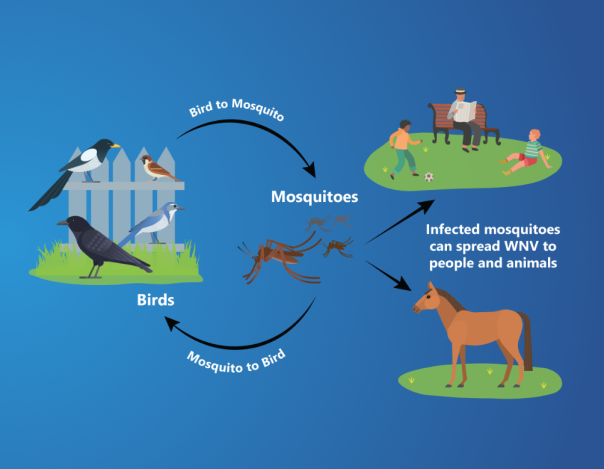The first human case of West Nile virus in Riverside County was confirmed Thursday, health officials reported.
A youth currently hospitalized in the county’s western region who tested positive for West Nile virus is one of three infections statewide in 2024.
“While West Nile is rarely life-threatening, it can occasionally be serious,” Riverside County Public Health Officer Dr. Geoffrey Leung said in a statement. “The West Nile virus is spread by mosquito bites, and there are steps you can take to reduce your risk of being bitten.”
No other details on the county’s first WNV infection were provided, but the minor is expected to make a full recovery.
The other two human infections were reported last month. One case was in Fresno County and one in Yuba County, according to the California Department of Public Health, which did not provide information on those patients.
No WNV-related deaths have been reported in the state this year.
“It’s important to take precautions to prevent illness, especially for those who are high risk,” Leung said. “High risk groups include people over 60, people with weakened immune systems and those with diabetes, kidney disease or other chronic medical conditions. These groups should take extra precautions.”
In 2023, 21 WNV infections were reported in the county, none of which contributed to deaths.
Mosquitoes usually acquire WNV after feeding on an infected bird. The insects can then spread the virus to animals and humans.
Symptoms do not always appear but include fever, headache, nausea, body aches, skin rashes and swollen lymph nodes, according to health officials.
Mosquitoes generally are most active in Southern California between early May and the end of October. To reduce mosquito exposure, county health officials urged residents to:
- avoid as possible being outdoors at dawn or dusk, when mosquitoes are usually on the move;
- wear long pants and shirts with long-sleeves shirts when outdoors in mosquito-prone locations;
- use insect repellent;
- make sure door and window screens are correctly fitted or install them to keep bugs out; and
- Remove standing water around yards — WNV mosquitoes lay their eggs on standing water. Change the water in pet dishes, birdbaths and wading pools a minimum of once per week and keep gutters debris-free.
More information is available at the county’s Disease Control Dashboard, https://www.ruhealth.org/public-health/disease-control/disease-watch.
The state’s West Nile portal is at https://westnile.ca.gov/.







